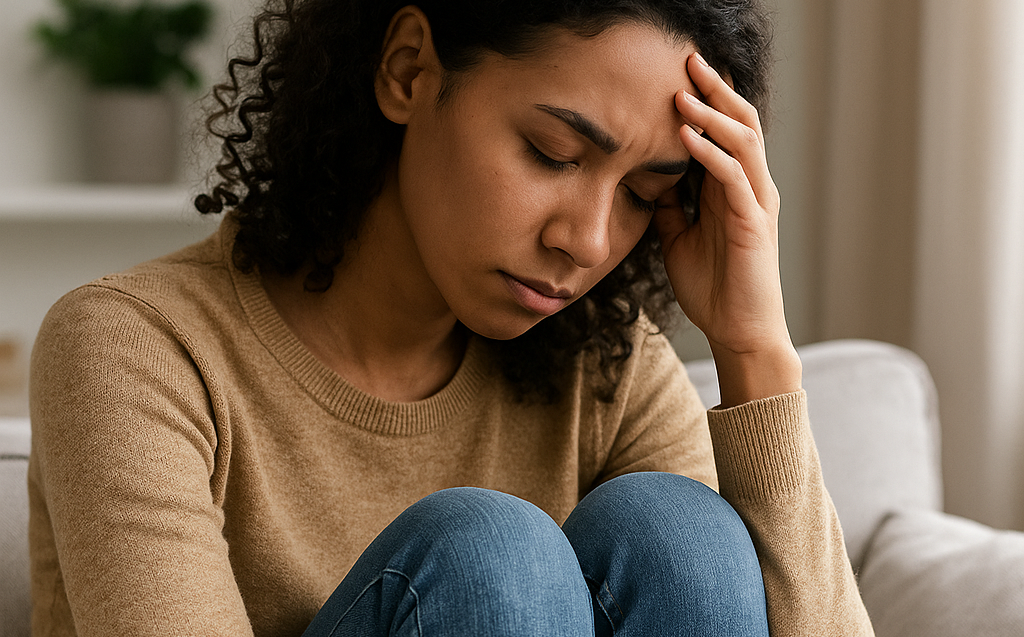Bringing a new life into the world can be a profoundly transformative experience. It can also be overwhelming, confusing, and emotionally complex. For many new parents, especially mothers, the days and weeks following childbirth are not filled with joy alone. Postpartum depression (PPD) is a deeply real and often misunderstood condition that affects countless individuals during one of the most vulnerable periods in their lives. At Open Space Counselling, we believe in creating compassionate space for healing and honest conversations around maternal mental health.
What Is Postpartum Depression?
Postpartum depression is a mood disorder that can affect women after childbirth. Unlike the “baby blues”—a short-term experience of mood swings, irritability, and tearfulness that fades within a few weeks—postpartum depression is more intense and lasts much longer. It often interferes with a person’s ability to care for themselves, their baby, or both.
Symptoms of postpartum depression may include:
- Persistent sadness, hopelessness, or feelings of emptiness
- Difficulty bonding with the baby
- Changes in appetite or sleep patterns
- Excessive crying or emotional numbness
- Loss of interest in activities once enjoyed
- Fear of being an inadequate parent
- Thoughts of self-harm or harming the baby
It’s important to note that these symptoms can range in intensity and may not look the same for everyone. The stigma around maternal mental health can also lead many to suffer in silence, believing that their feelings are invalid or that they are simply “not strong enough.”
Why Postpartum Depression Happens
There is no single cause of postpartum depression. It often results from a combination of physical, emotional, and hormonal changes. After giving birth, estrogen and progesterone levels drop rapidly, which can trigger mood shifts. Sleep deprivation, the stress of caring for a newborn, past trauma, and lack of support can further contribute to emotional distress.
Additionally, individuals with a history of depression, anxiety, or other mental health concerns are more likely to experience postpartum depression. External factors such as financial stress, relationship strain, or a traumatic birth experience can also play a role.
The Importance of Recognizing the Signs
Recognizing the signs of postpartum depression early is key to seeking effective support. Unfortunately, societal expectations around motherhood often make it difficult to admit when something feels off. New mothers are frequently told they should be glowing with joy—but that’s not always the reality.
Being open about mental health is a courageous first step. Whether you’re a new mother, a partner, or a loved one noticing a change, acknowledging the signs can lead to life-changing intervention.
How Therapy Helps With Postpartum Depression
Therapy offers a safe and supportive environment to explore your thoughts and feelings without judgment. At Open Space Counselling, our therapists are trained in maternal mental health and understand the unique pressures and emotional turbulence that can arise after childbirth.
Through counselling, you can work to:
- Identify and process the root causes of your distress
- Develop coping strategies and tools for emotional regulation
- Rebuild confidence in your parenting and personal identity
- Strengthen communication and relationships with your partner and support system
Therapy isn’t about fixing you—it’s about walking alongside you during one of the most profound transitions of your life.
When to Seek Help
If your emotional struggles persist longer than two weeks or feel like more than you can manage alone, it’s time to reach out. There is no shame in needing support. In fact, seeking help is a sign of strength and self-awareness.
The Role of Community and Connection
Healing from postpartum depression doesn’t happen in isolation. Building a supportive community—whether through family, friends, parenting groups, or counselling—can make a meaningful difference. Feeling seen and understood can offer a sense of relief, hope, and encouragement to keep moving forward.
Open Space Counselling offers a range of therapy services that prioritize emotional safety and holistic wellness.
Partners and Loved Ones: How You Can Help
Postpartum depression doesn’t only affect the person who gave birth—it impacts the whole family unit. Partners and loved ones often feel unsure of how to help or afraid of saying the wrong thing. Here are a few ways you can offer meaningful support:
- Listen without offering quick fixes
- Validate their emotions, even if you don’t understand them
- Encourage rest, breaks, and time for self-care
- Gently suggest therapy or professional support
- Take on practical tasks to reduce stress
Healing is a collaborative process, and your support can be the steady presence someone needs to begin their journey back to themselves.
You’re Not Alone—And You’re Not Broken
Postpartum depression can feel like it consumes your identity—but it doesn’t define who you are. With the right support and therapeutic care, healing is possible. Many who experience postpartum depression go on to rebuild their emotional well-being, reclaim their confidence, and grow stronger through the process.
It’s okay to ask for help. You deserve to feel whole, supported, and seen. Whether you’re in the early days of new parenthood or further along your journey, find out more about postpartum depression support at Open Space Counselling.

